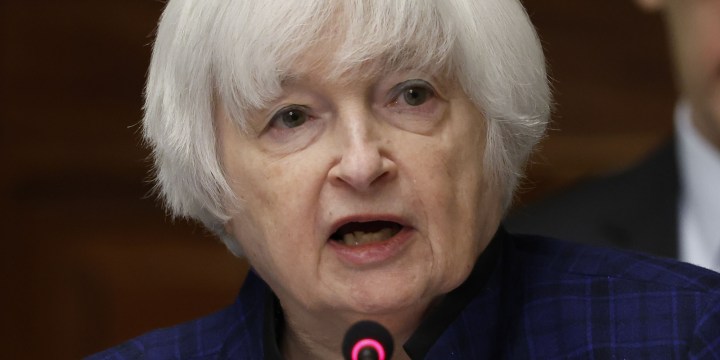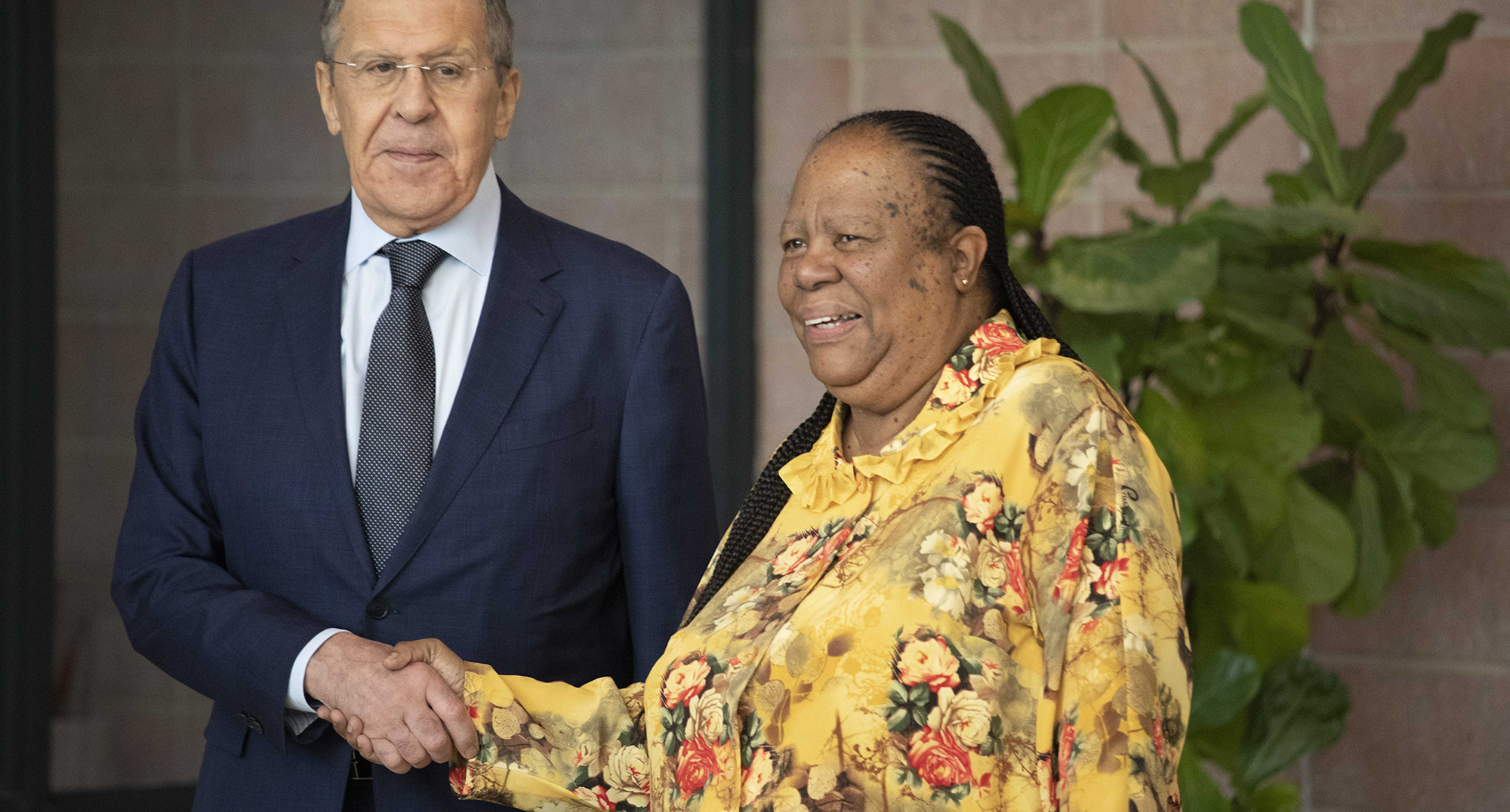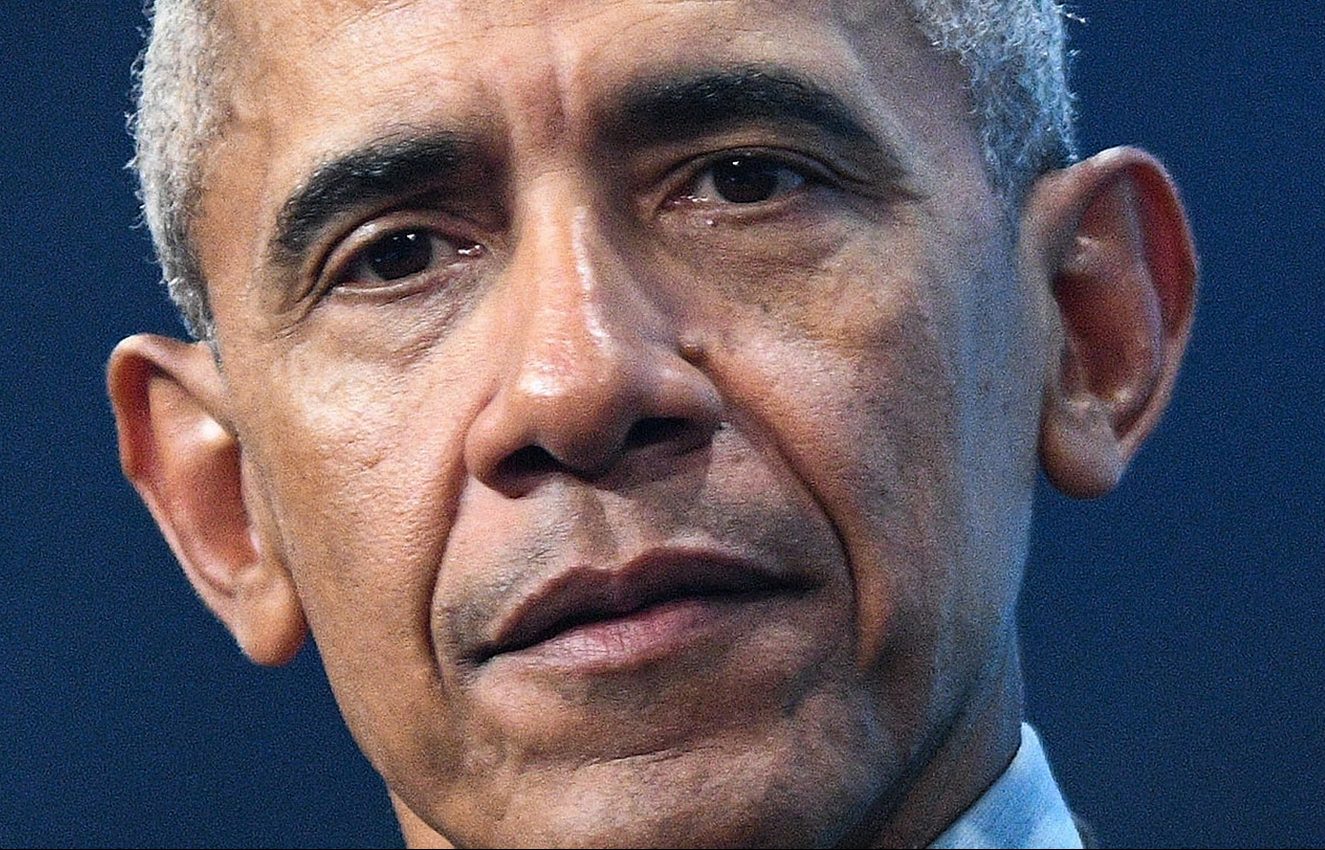ANALYSIS
Diplomatic Traffic Jam: Why Russia and the United States are courting South Africa

South Africa is attracting increasing diplomatic attention from outside powers, even as it has elected to undertake a morally hazy joint naval exercise. Let’s dig deeper.
Quite suddenly, South Africa is getting significant attention from global players. This does not, however, mean a sudden recognition of an astonishing rise in international importance or impact. Other external factors may be much more important.
Russia, now deeply enmeshed in its self-inflicted journey into the metaphorical quicksand of the steppes of Ukraine, comes seeking positive expressions of love in an increasingly unfriendly world.
Increasingly unwelcomed at Davos, unwelcome at the G7, and unloved in world capitals beyond places like Asmara, Damascus, Pyongyang, Yerevan, Tehran, Bangui or Minsk, the Russian foreign minister, Sergey Lavrov, was virtually beaming from the uxorious embrace and words he received this week from senior figures in the South African government.

Russian Foreign Minister Sergey Lavrov (left) is welcomed by South African Minister of International Relations and Cooperation Naledi Pandor for bilateral talks in Pretoria on 23 January 2023. (Photo: EPA-EFE / Kim Ludbrook)
The latter may be mindful of their upcoming chairmanship of the annual BRICS leaders’ (comprising government heads from China, Russia, Brazil, India and South Africa) meeting for 2023. But there is still the awkwardness of that embarrassing trilateral naval exercise that is scheduled to take place over a week that includes the first anniversary of the invasion by Russia of Ukraine.
But even now, there remain the increasingly ritualised incantations of fealty to remember those halcyon days, back when the Soviet Union gave support to exiled ANC figures — or weapons training to would-be guerrilla fighters. Then too, helping cement the connection, perhaps, there have, more recently, been those hush-hush treatments of party and government bigwigs rumoured to have been victims of poisonings. Perhaps there is a connection. Then, too, there remains the half-digested idea that an increasingly imperial Russia is somehow a symbol of anti-Western resistance — rather than what it has become instead.
(Is the switch from the days of the old Soviet Union to today’s Russia and its current military onslaught against a neighbour just a tad jarring? Never mind. South Africa’s Department of Defence and Military Veterans was insistent this partnership signifies a very different time from the bad old days when South Africa was “the polecat of the world”. Thus, in this topsy-turvy logic, this upcoming exercise is emblematic of a truth that South Africa has powerful friends.)
Still, the Russian challenge largely comes in the diplomatic and security spheres. Russian trade with Africa as a whole remains very limited and the Russian assertion of its presence on the continent is largely aimed at bolstering Russia’s geopolitical position, including using strategic assets such as Wagner Group mercenaries to bolster wobbly African regimes.
China’s quiet fortitude
The much more impactful Chinese effort largely focuses on economic and trade efforts, even as it is designed to demonstrate that China is a reliable international partner. In a recently released analysis, the Africa Centre for Strategic Studies, looking at Chinese continental strategy, observed:
“China’s desire to reshape multilateral institutions and create new ones, rests in part on its ability to enlist Global South support for its global initiatives. Africa is the largest bloc in the United Nations (UN) General Assembly with 28 percent of the votes compared to Asia’s 27 percent, the Americas’ 17 percent, and Western Europe’s 15 percent. Africa also holds more than a quarter of the votes in all UN governing bodies and is the largest bloc in other agencies like the World Trade Organization, the Group of 77, and the Non-Aligned Movement. This makes Africa’s votes critically important to Chinese efforts to redesign global institutions.”
Still, the vast majority of Chinese imports from Africa continue to be low-value-added raw materials, while exports to the continent are largely finished goods. This relationship seems to appeal to many African rulers because China has taken a position that discussions about a country’s internal politics should remain off the table in China-Africa relations.
Meanwhile, the Chinese, although also part of the upcoming tripartite naval exercise, have managed to stay quiet about it. Perhaps they have become content to let Russia and South Africa take the heat, while they continue preaching mutual non-intervention in domestic affairs, or where they encourage African governments to sign on for Chinese government and quasi-government agency loans and keep sending those raw materials eastward, thank you. (That loan crisis seems to be a problem for Zambia, one of three stops on US Secretary of the Treasury Janet Yellen’s current Africa trip to Senegal, Zambia and South Africa.)
Difficulties faced by the US
But the awkwardness of Russia’s circumstances (or China’s quiet fortitude) does not obviate the difficulties faced by the United States in its own newly reinvigorated efforts on the African continent. The four-year train wreck that was the Trump administration’s policies towards and statements about Africa (and, on occasion, really raw words towards South Africa) have left ugly residues not easy to wash away.
To provide an antidote to that toxicity, the Biden administration has reached back to the Obama years of 2009-2017. That becomes an effort to re-establish a more positive relationship with the continent — choosing to label it explicitly as a two-way partnership. The hope is that it will evolve despite real limitations on new foreign policy initiatives, given current geopolitical realities as well as government budgetary concerns.

Former US president Barack Obama. (Photo: EPA-EFE / Phillip Guelland)
In the early years of the Obama administration, this writer prepared an analysis for the Centre for Policy Studies in Johannesburg on the long-term arc of US policy towards Africa, up to the beginning of the Obama administration.
I wrote, “When Barack Obama was elected president of the US, however, expectations on the continent for a great revival of interest and involvement with Africa grew quickly. While the incoming Obama administration may well have had such ideas in mind, the budgetary and financial realities that came in the wake of the 2008 Great Recession have decisively turned the new president and his government away from major international initiatives (and especially those directed towards Africa) that could or would carry real, significant financial implications for the American government or economy.”
The then-president had asserted in a speech in Accra, Ghana, that the ‘partnership must be grounded in mutual responsibility and mutual respect…’ And he went on to say that: ‘Africa’s future would not derive from the giants like Nkrumah and Kenyatta who will determine Africa’s future… Instead, it will be the young people brimming with talent and energy and hope who can claim the future that so many in previous generations never realised.’ Obama then moved on to his underlying theme, that ‘we must first recognise the fundamental truth that you have given life to in Ghana: Development depends on good governance… And that is a responsibility that can only be met by Africans.’
“While pledging more aid, Obama argued that ‘the true sign of success is not whether we are a source of perpetual aid that helps people scrape by — it’s whether we are partners in building the capacity for transformational change.’
“Obama reiterated the need for strong and sustainable democratic governments as well as a partnership that gives more opportunities for more people, even as foreign assistance programs must work themselves out of existence by their success. Moreover, Obama argued trade and investment must be promoted with open markets.”
All of these positions are effectively being recapitulated (and, they hope, reinvigorated) in the Biden administration, something that largely began with the US-Africa Leaders Summit in December 2022. The meetings and events in the treasury secretary’s current itinerary range from high-level appointments with presidents and Cabinet ministers to gatherings of business leaders, and on to gatherings with entrepreneurs and trainees in skills development programmes in the three countries, as well as visits at long-standing US investments such as Ford near Pretoria, or first-hand looks at sites related to global climate change such as coal mining.
‘Everything but the kitchen sink’
The US government, in describing the purposes of the trip, offered an “everything but the kitchen sink” policy agenda. As it explained, “While in Africa, Secretary Yellen will highlight the Biden-Harris Administration’s work to deepen US-Africa economic ties, including by expanding trade and investment flows and promoting sustainable and inclusive economic growth. This follows the US-Africa Leaders Summit held last month in Washington, DC, where President Biden announced more than $15-billion in two-way trade and investment commitments, deals, and partnerships.
“Secretary Yellen will discuss the ways that the United States is working with African leaders to build a stronger and more resilient economy on the continent that benefits their citizens, the US, and the entire world. That includes by funding high-quality infrastructure investments through the Partnership for Global Infrastructure Investment, preventing and preparing for future pandemics through the new Pandemic Fund, partnering to strengthen democracies and institutions against corruption, and helping African countries address debt vulnerabilities.
Visit Daily Maverick’s home page for more news, analysis and investigations
“While in Africa, the Secretary will also underscore the importance of accelerating clean energy access, helping countries adapt to a changing climate, promoting a just energy transition and providing greater economic opportunity for communities and businesses. During her engagements, Yellen will urge further action to evolve the multilateral development banks to better address global challenges like climate change, health and pandemics, and conflict and fragility, complementing these institutions’ work on poverty reduction and inclusive and sustainable economic growth.”
Beyond more usual treasury-style discussions, and given the effect of the Russian invasion of Ukraine on policy thinking in Washington, Yellen’s brief is also to “underscore the spillover effects of Russia’s illegal war in Ukraine, which have disproportionately hurt developing countries in Africa and globally. The Secretary will note the steps the US has taken to boost food security, including through over $13.5-billion in assistance, a call for international financial institutions to develop and implement an Action Plan to address food insecurity and new support to the International Fund for Agricultural Development and the Global Agriculture and Food Security Program.
“Given the continued urgency to strengthen both short-term and long-term food security, the Secretary will also discuss implementation of the US-Africa Strategic Partnership on Food Security launched at the African Leaders Summit. Secretary Yellen will also highlight our work to address high energy costs by promoting market stability, including through the price cap on Russian oil.”
A polite hearing
But the reality is that while here in South Africa, while Secretary Yellen will certainly receive a polite hearing, her visit will not generate the kind of effusive official welcome accorded Lavrov. In part, that stems from the general diffidence towards the US (and that embrace of Russia) on the part of so many in government here. But it may also be because key parts of her agenda run into fraught South African policy squabbles.
For example, the Just Energy Transition Fund (JETF) that came out of the recent COP climate meeting — a multinational effort designed to support a switch from coal to largely renewable forms of fuel for electrical generation — runs right into the local mess of those never-ending blackouts that are part of a faltering electrical grid.
But further, while some support the idea of the JETF’s shift towards renewables, many of those supporters are upset about the balance between loans and grants. Moreover, the very nature of the JETF seems to run counter to South Africa’s politically potent coal lobby (that includes miners, shippers, labour unions and some key politicians) to the degree the JETF pushes away from dependence on coal as the primary fuel to generate electricity.
In all the attention on a senior government official’s visit, it is important to remember that taken as a whole, US trade with the continent remains a significant share of the latter’s trade and that much of the relationship is based on the actions of private sector actors. For example, there are some 600+ US companies active in South Africa, and yet others throughout the rest of the continent.
More and more, US exports to Africa are in the shape of intellectual property that appeals to Africa’s rising middle class and its youth. This is where the commercial interest lies — the fast-rising share of the population of the continent that is part of a rising or aspirant middle class, and most especially a population that is young and hopes to be economically active.
One area where real attention must also be paid is the trade architecture between the US and Africa. The African Growth and Opportunity Act — a US unilateral tariff and duty concession to encourage African exports to the US — is set to expire in 2025. As yet, however, there is little discussion about renewing it or replacing it with a broader multilateral agreement.
But such negotiations take years to reach a conclusion. To the extent that African economic growth depends on increased trade beyond the continent, here is where some real political heft and intellectual energy from the continent needs to be engaged as a matter of increasing urgency. But it is not something that can be achieved by anyone waving a magic wand and wishing it were so. DM


















 Become an Insider
Become an Insider
Thankyou for a well articulated article. It is quite evident that our politicians do not have the economic welfare of their citizens at heart. Ideology apart, they simply need to look at the obvious comparative benefits of their relationships with the West compared to those from Russia and China – but could it just be that the opaqueness of financial transactions in those countries suits them?
Methinks therein lies our problem.
Africa will forever be seen with both hands held out for aid. A lack of work ethic, endemic corruption and socialist idealism will condemn many more millions as the population expands in the decades ahead. With many tens of millions more mouths to feed, people to clothe and roofs needed over heads, the present state of affairs offers no confidence that any African country will cope with this.
The Western Nations they despise, will be the Nations they will blame for not providing enough aid.
How much food has Russia and China donated to Africa, compared to Europe and the US, in the past 30 years?
Cosy up with Russia and China and they will bleed Africa to death.
Maybe I don’t understand the US government structures that well, but to me, mutual respect would mean that the US president meets with African presidents. To me, that would be a show of (mutual) respect.
the US president did meet with dozens of African presidents during last year’s summit. there is nothing preventing a senior official — a Russian foreign minister or a US treasury secretary — from meeting with their counterparts as well as an African president should schedules and interest make it logical to do so. it happens fairly frequently. the US president takes hundreds of meetings a year, with all manner of people from the US and other nations. I guess I don’t understand your problem.